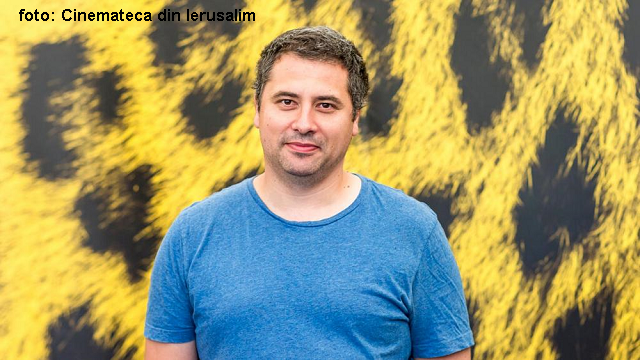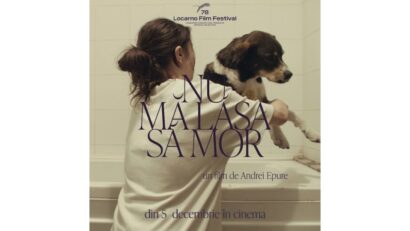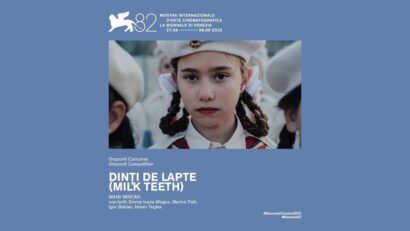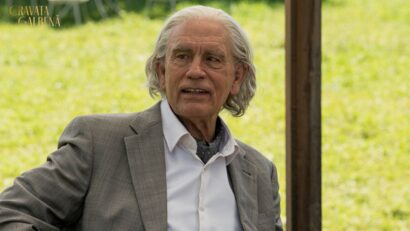Romania’s Entry for the Academy Awards
A road-movie, but also a drama, a comedy and a satire, but also a montage film, plus a digital avatar, anecdotes and music

Ion Puican, 02.11.2023, 01:16
A road-movie, but also a drama, a comedy and a satire, but also a montage film, plus a digital avatar, anecdotes and music – all these characteristics can be attributed to the new film by director and screenwriter Radu Jude, Don’t Expect Too Much from the End of the World. It is Romania’s proposal for the Oscars, the American Academy Awards in 2024. Actress Ilinca Manolache and non-professional actor Ovidiu Pîrsan play the main roles.
The film Don’t Expect Too Much from the End of the World premiered at this year’s Locarno International Film Festival, where it was awarded the Silver Leopard – Special Jury Prize, Mention from the Ecumenical Jury and First Prize from Youth Jury.
Radu Jude is one of the most appreciated contemporary directors nationally and internationally, winner of several awards, among which we mention the Berlin International Film Festival in 2009, with his debut film, The Happiest Girl in the World , the Silver Bear, in 2015, with the film Aferim!, and last but not least, the 2018 feature film I Don’t Care If We Go Down in History as Barbarians, the first Romanian film to be awarded the Crystal Globe at the Karlovy Vary Festival.
In October, the press conference announcing Romania’s proposal for the Oscars was held. The creative team talked about the digital avatar that appears in the film, avatar created by the lead actress herself. Ilinca Manolache and Radu Jude tell us more about this topic:
“It started out of me wanting to vent my frustration with this kind of dynamic that I was and still am encountering very often in our society. And I took on the idea, and when I invited Ilinca to play in the film, with Ilinca collaborating for a smaller role in other films and wanting very much to make a film together with a bigger role. I took over the avatar, her creation, because it seemed to me, on the one hand, a very intelligent and very edgy way, with many contradictions and with many asperities, to formulate a criticism, let’s call it that. Because the film spins or goes in several directions, explodes in several directions, one of the directions is related to the very definition, or the attempt to understand what a character means, what it means to create a character, and I thought it was really interesting to have a character that is played by Ilinca, and that character creates another character that is this avatar. As well as what is a mixture between the creation of Ilinca Manolache, the creation of the character, the creation of the platform. And then, there’s something else that interested me, maybe even more than that: what does an image mean? What does the construction of an image mean in relation to reality? What is lost with the appearance of these types of virtual images, and now with AI, this whole story is even more complicated. There’s an energy in these platforms that sends us back a little bit to the beginnings of cinema.
We asked director Radu Jude how he built the road-movie part of the film, including the montage part inserted into the film, made in black and white style:
“Regarding the black and white part, things were built step by step, because the script, so to speak, or the project, was built step by step. This idea of creating a montage in which to enter on the side of the main story, the story of Ilinca’s avatar, and then the images from Angela Moves On, by Lucian Bratu, and so on, all this was added later, step by step. We decided to shoot not just in black and white, but we shot on 16mm film, black and white, maybe out of a kind of desire to experiment with a sport that’s almost on the verge of extinction, in a way.
How did the lead actress Ilinca Manolache receive the offer of this role and how did she create it? Ilinca Manolache told us:
For me, the most important thing was to be very attentive to what Radu asked me to do, to be super focused on what had to be done during the filming. When I read the script, I said this before, I felt super-represented, so it wasn’t, I didn’t feel this character very far from me, that’s clear. It’s something I’m so proud of, and it represents me so much that I ask myself the question: What am I going to do next? Because something that maybe equals what we did here might be harder to come by.
In the end, the non-professional actor Ovidiu Pîrsan wanted to specify:
“I want to tell you that for me it meant a lot, I mean I think it was the most beautiful experience of my life, so to speak, for the first time doing this thing. The role was kind of… it wasn’t hard for me, because I don’t know if you all know, I’m actually in a wheelchair. I told myself, just tell the story, in another version.






























